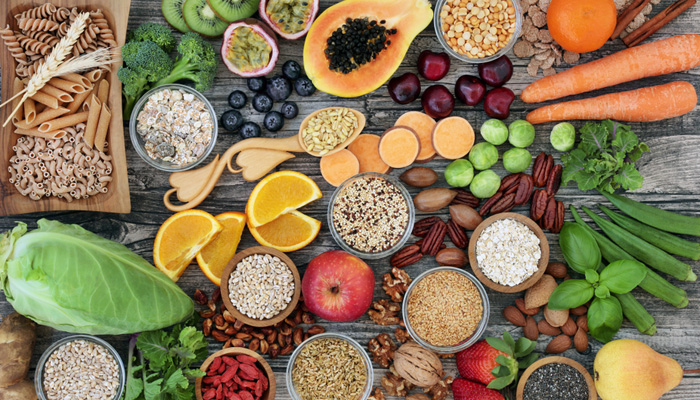Shutterstock
It may be time to rethink everything we’ve heard about low-carb diets, as a new study undertaken by the World Health Organization has found that fiber in “good” carbohydrates helps reduce heart disease risk, as well as, the risk of chronic diseases up to 24 percent.

The World Health Organization (WHO) commissioned a new study and published the results in the journal The Lancet.
Researchers examined 40 years’ worth of existing data and research, which included 185 observational studies and 58 clinical trials involving over 4,600 people.
The goal of the research was to determine the ideal amount of fiber humans need to consume to help prevent chronic disease and premature mortality. The final aim of the research was to develop new guidelines for dietary fiber consumption.
Noncommunicable diseases, or chronic diseases, are not transmitted from others and are those which are persistent and progress slowly. They are also, by far, the leading cause of death in the world, representing 63% of all annual deaths, according to the WHO.
There are four main types of noncommunicable diseases according to the WHO: Cardiovascular diseases, cancer, chronic respiratory diseases and diabetes.
The researchers investigated to see what role fiber played in the diets of people with these conditions.
As a result of the research, scientists learned which carbohydrates offer the most protection against noncommunicable diseases.
Researchers say that a daily intake of 25-29 grams of fiber is the ideal amount, but researchers believe that consuming more than that amount may yield additional health benefits.
Unfortunately, most adults in the United States only consume about half of the amount of the daily fiber researchers found to be ideal, consuming roughly only about 15 grams of fiber daily on average.
The research revealed that people who consumed foods rich in fiber had a 16-24 percent lower incidence of coronary heart disease, stroke, type 2 diabetes and colon cancer.
Researchers say that the best fiber rich foods are: Whole grains, vegetables, fruit, lentils, peas, chickpeas and beans. They also say “pulses” or the seeds of legumes are high quality sources of fiber. These include peas, beans, lentils, chickpeas and fava beans.